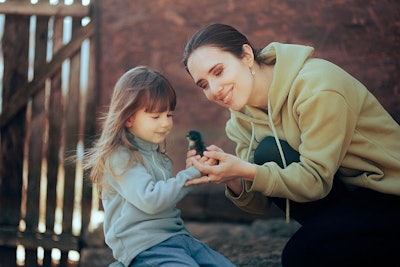
While the technology is there, bird owners in the United States and Canada cannot vaccinate their birds for highly pathogenic avian influenza (HPAI).
A few countries have approved vaccination programs, but the number of those is very small. Presently, most countries do not allow HPAI vaccinations, because of the trade implications.
But one animal health expert earlier this year said that mentality should come to an end.
“The downside of using vaccines at this time in the United States, and really anywhere across the globe is that they cause trade impacts. So there are many countries that won’t accept poultry or poultry products from a company that is vaccinating,” said Dr. Carol Cardona, Pomeroy chair in avian health for the University of Minnesota College of Veterinary Medicine. “That is simply something that we’re going to have to get over, because globally, this particular clade of viruses, this H5 group of viruses, is so dangerous that we need to use every tool that we have.”
Maybe the world is starting to get over it.
Dr. Sara McReynolds, deputy animal health commissioner, said in August: “There has been more discussion. Some companies in Europe are starting to look at vaccination more, which is (leading) some companies in the United States consider it more.”
Not all birds are in commercial production
While I understand why avian influenza vaccination is not done in commercial poultry, I don’t see why the same rules would apply to people who have backyard poultry or birds as pets.
After all, according to World Organisation for Animal Health standards, HPAI cases in such birds should not impact international poultry trade. So why should HPAI vaccination for such birds be disallowed when they will never cross a national border?
If people are just raising birds for their own enjoyment, or to not have to go to the grocery store for eggs, why should they not be given the opportunity to protect them from disease, especially one that can be as virulent and harmful as HPAI?
When you think about it, the first case of HPAI in North America during the current outbreak was at an exhibition farm in the Canadian province of Newfoundland and Labrador. It wasn’t a commercial poultry flock.
The virus likely would have still spread via wild birds had that Canadian flock not been infected, but reducing the percentage of the bird population from being at risk of contracting HPAI would in turn reduce the risk of commercial poultry flocks from being infected, even if only to a slight degree.
The ability to vaccinate would also reduce the risk for birds at zoos and nature centers.
And maybe we should look at the case of Emmanuel the emu, the bird the social media world feared had HPAI. Luckily, he didn’t, but if his owner had the option to vaccinate him, that worry may never have occurred. Also, can you imagine the public outrage that would have taken place had Emmanuel actually contracted HPAI and had to be euthanized?
At this point, it appears there are numerous advantages to giving bird owners an opportunity to vaccinate, and not as many advantages from preventing them from doing so.
What are your thoughts on the matter?
View our continuing coverage of the global avian influenza situation.


















